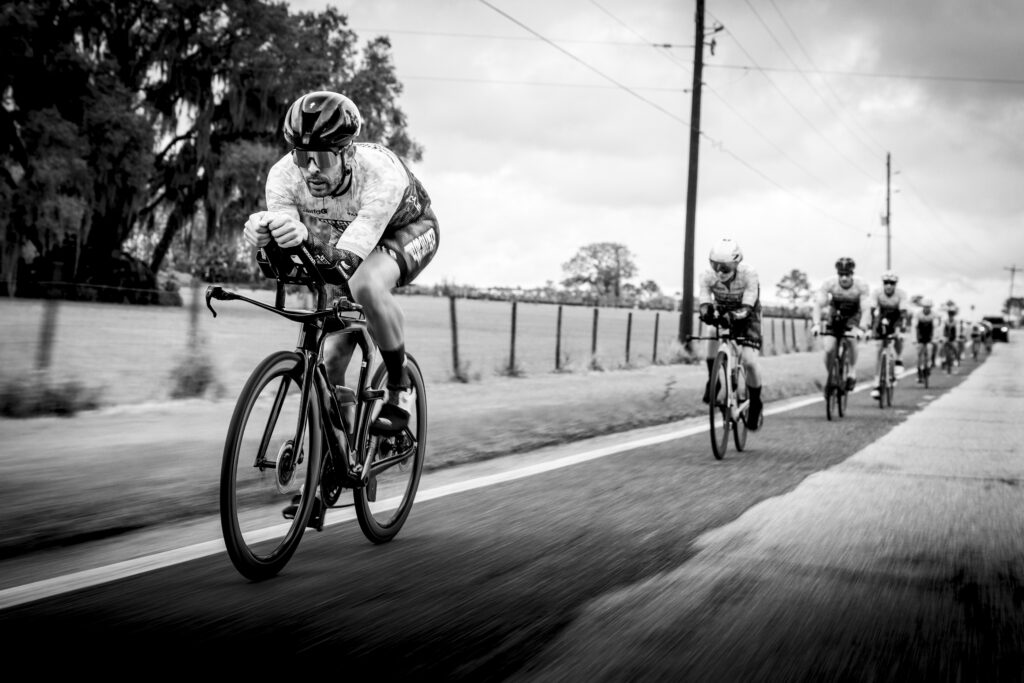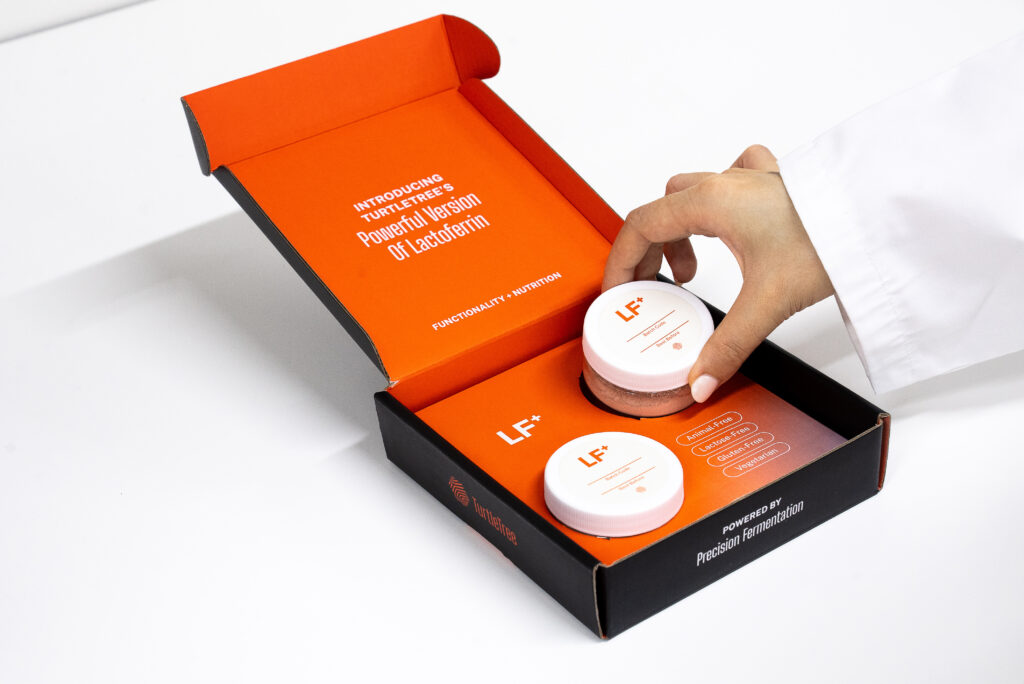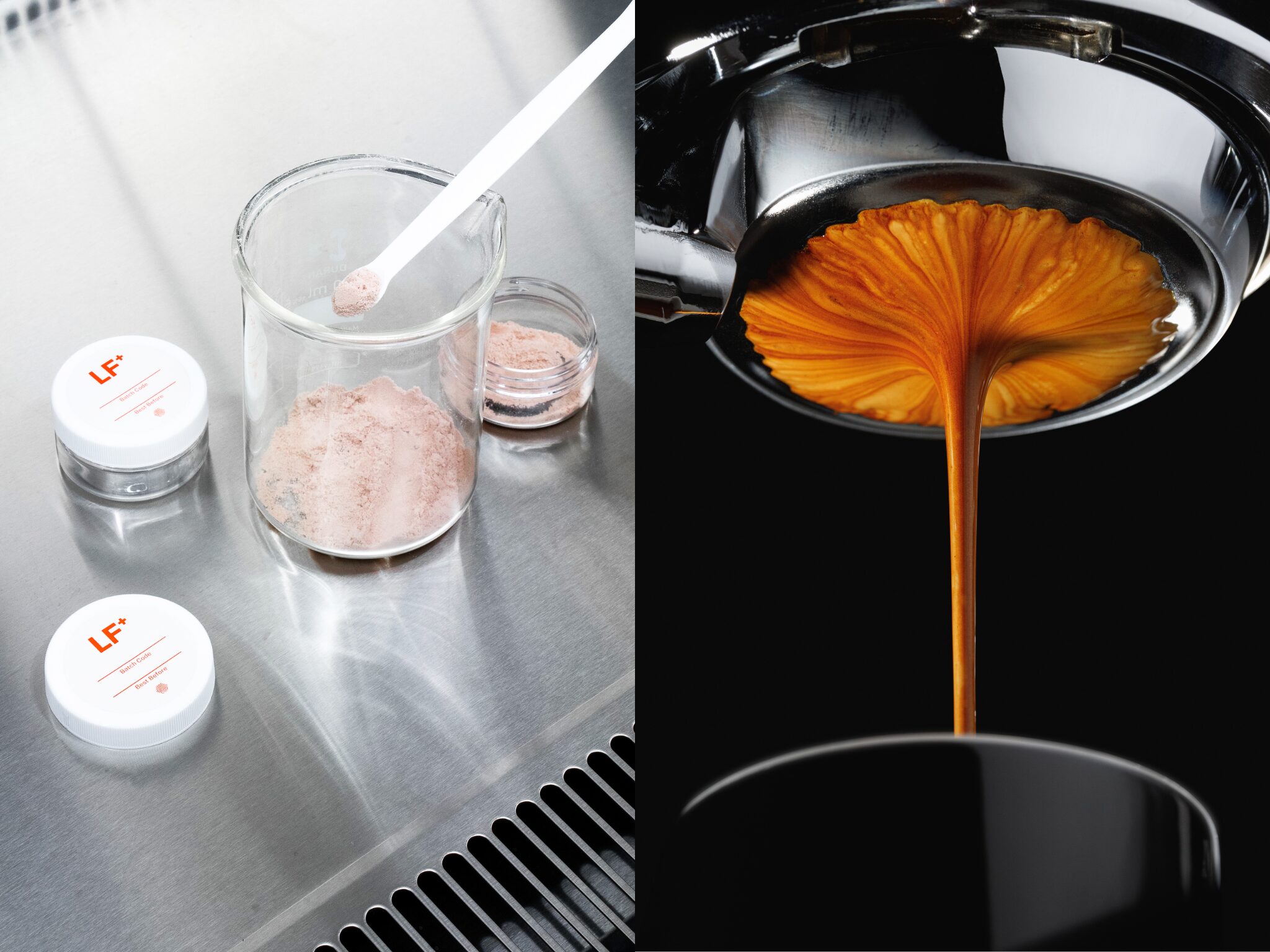TurtleTree to Debut Animal-Free Lactoferrin with Espresso Shot for Endurance Athletes
6 Mins Read
Singaporean food tech startup TurtleTree has partnered with a nutrition brand to debut its precision-fermented lactoferrin as part of an espresso shot for endurance athletes.
Six months after obtaining self-affirmed GRAS (Generally Recognized as Safe) certification in the US, TurtleTree has announced its first commercial partnership, teaming up with Cadence Performance Coffee for a line of cold brew espresso shots infused with its animal-free lactoferrin powder, LF+.
The ready-to-drink coffee product will be available in original and salted caramel flavours, with a potential price of $7 for each 2.5oz shot. It will be rolled out in the summer via the e-commerce channel, before moving to Amazon and brick-and-mortar retail.
“Cadence as a company is focused on human performance and lactoferrin, as a valued milk protein, has a number of applications around functional health,” TurtleTree co-founder and CEO Fengru Lin told Green Queen. “Our goal is to make lactoferrin synonymous with performance nutrition so this is the perfect partner for us to kick off with. The coffee creation with added health benefits aligns well with the TurtleTree mission.”
Dan LaValley, founder of Cadence Performance Coffee, said: “We worked with TurtleTree very successfully on a project that was introduced at a sustainable nutrition summit in Egypt.” TurtleTree was the official drink partner at COP27, unveiling a sparkling drink using its lactoferrin.
“We knew the capabilities of the company and about the wonderful team, and we have our own connections to UC Davis as well [the site of TurtleTree’s R&D headquarters],” he added. “As we started to develop high-performance espresso shots, it was only natural for us to want to work with TurtleTree and to bring the LF+ shot to market.”
LaValley revealed that the brand is now developing other products using LF+ as well, including canned cold brew coffee and a yoghurt.
Targeting iron regulation for elite performance

TurtleTree explained that coffee and lactoferrin have a symbiotic relationship – the former’s effects on metabolic activity will speed the absorption of the animal-free milk protein into targeted physiological processes. The ready-to-drink functional espresso is geared towards enhancing the performance of endurance athletes, with a particular focus on iron deficiency.
Iron deficiency affects 30-50% of athletes participating in endurance sports like triathlons, marathons and high-altitude sports. Low levels of the nutrient can lead to fatigue, shortness of breath and weakness, among other challenges. But one of lactoferrin’s main functions is iron regulation, and the high iron content gives the protein a reddish hue, earning it its ‘pink gold’ nickname.
The protein can bind iron, which improves red blood cell production, iron circulation and stored iron levels, which is crucial for peak athletic performance. The iron-binding properties also support advanced immune function. Plus, lactoferrin regulates gut health, maintaining microbiota diversity and supporting intestinal barrier function.
But while it’s a highly sought-after protein, the global supply of lactoferrin – which is found in human milk and bovine colostrum just after birth – is strained, given it takes at least 10,000 litres of milk to produce just 1kg of purified lactoferrin. That drives up prices, with the protein retailing for $750-$1,500 per kg. It means lactoferrin is used in limited applications, like supplementation and infant nutrition (the latter is responsible for 60% of the protein’s supply).
Innovations like LF+, which is completely soluble, allow manufacturers to meet the growing demand for the protein for adult nutrition. “We are focused on creating better-for-you food and beverages, boosting iron, immune function, and gut health,” said Lin. “The Cadence Cold Brew Espresso Shots with LF+ does exactly that and is a synergistic combination to give folks the energy they need for their day.”
Cadence Performance Coffee has experience in bringing advanced nutrition products and tools – like the deltaG ketone technology – to elite athletes, astronauts, “extreme job executives” and military units. “Cadence will offer a ketone espresso shot as well as the lactoferrin product, then in the future will likely combine the two for a third SKU,” said LaValley.
“We are also looking at using an active ingredient called C60 (Carbon 60), but this product is still in early development.”
A breakthrough for the precision fermentation sector

The announcement marks a milestone for the precision fermentation industry, with TurtleTree being the first company to commercialise an animal-free lactoferrin product. The startup has indicated that its clients are interested in purchasing $500M worth of LF+ over the next five years.
It has managed to scale up production and subsequently bring down costs for LF+, which Lin confirmed is priced the same as the market value of bovine lactoferrin. Its uses transcend infant formula, supplements/multivitamins and functional beverages – it will be useful for producers of protein powders, meal replacements for the elderly, and animal-free dairy products.
When TurtleTree obtained self-determined GRAS status in November, it had outlined its intention to notify the FDA for a ‘no further questions’ letter – which is seen as a more transparent process that enhances market and consumer confidence – at some point this year. “We are preparing to file our dossier before Q3 2024,” confirmed Lin.
TurtleTree’s self-affirmed GRAS announcement has been followed by a spate of similar regulatory breakthroughs for the precision fermentation sector. Californian startup The Every Co received its third ‘no further questions’ letter for its animal-free egg proteins in December, followed by Israel’s Imagindairy earning the same status for its whey protein a month later. In March, San Francisco’s New Culture became the first company to attain self-affirmed GRAS status for animal-free casein, Dutch startup Vivici obtained this certification for its whey protein, and California’s Oobli received FDA approval for its sweet protein.
The lactoferrin market itself is estimated to grow by 15.8% annually to reach $3.3B in 2033. Australia’s All G Foods, New York’s Helaina, and British-South African startup De Novo Foodlabs are all working on precision-fermented lactoferrin. The latter has conducted a life-cycle assessment to find that its protein would potentially have a 99.9% lower GHG footprint, land use and water use than conventional lactoferrin.
In February, TurtleTree also earned a vegan certification for LF+, though it must be noted that this doesn’t mean it’s suitable for people with dairy allergies. The move, which the startup itself labelled as a “hot-button” issue, could potentially create confusion among consumers who assume vegan products are automatically dairy-free – which was typically the case until the commercialisation of precision-fermented dairy proteins.
“Given that to date, consumers tend to understand ‘vegan’ as ‘plant-based’, and therefore not expect to encounter a milk allergen, labelling milk protein made via fermentation as vegan could lead to confusion around allergenicity,” Irina Gerry, chief marketing officer of US-Australian precision fermentation company Change Foods and vice-chair of the board of the Precision Fermentation Alliance, told Green Queen at the time. “I always look at it from the end consumer in mind. If a company is targeting a vegan audience, then obtaining vegan certification would be highly beneficial.”
In response, TurtleTree has explained its stance on the subject. “TurtleTree proactively decided that achieving vegan certification for our first LF+ product was key to our mission and focus. This was a resource-intensive choice to help customers better understand that our lactoferrin is animal-free and can provide the same benefits such as iron regulation, immune function, and gut health as traditional dairy lactoferrin,” it said.
“We acknowledge the potential for confusion that has been raised, as it relates to dairy allergen statements. The FDA requires any precision fermentation-derived protein to carry a dairy allergen warning. We hope to work with the FDA to change their stance on this in the future. So, even though we are dairy-free, vegan, animal-free, and lactose-free, we must provide this warning on our product and we do. We are not looking to hide this warning with our vegan certification but to give more information to consumers as they begin to choose healthier alternatives.”
This story was updated to add TurtleTree’s response to the vegan certification debate.




